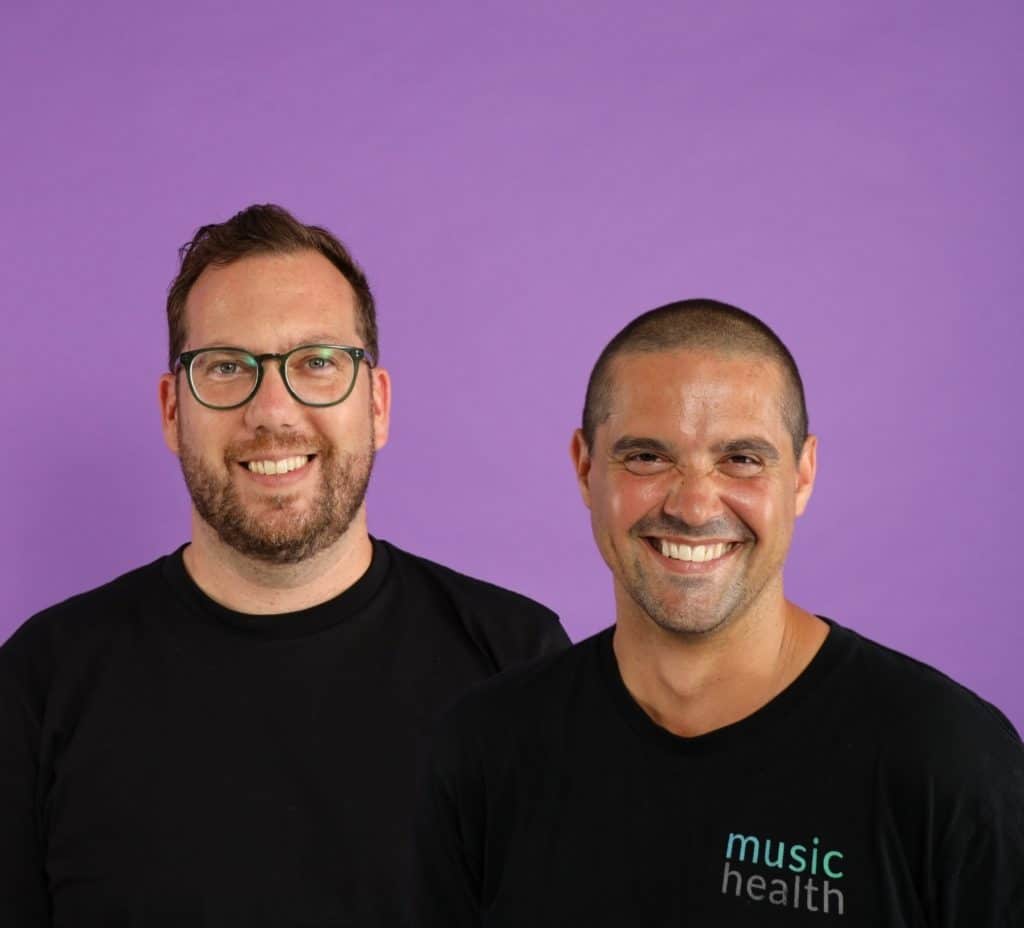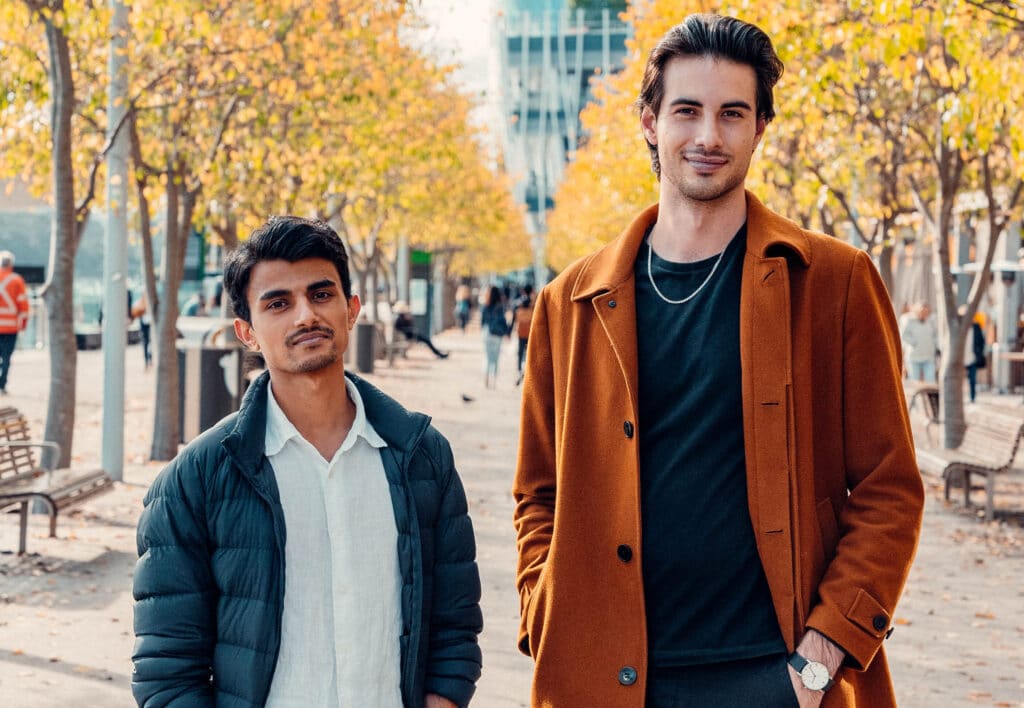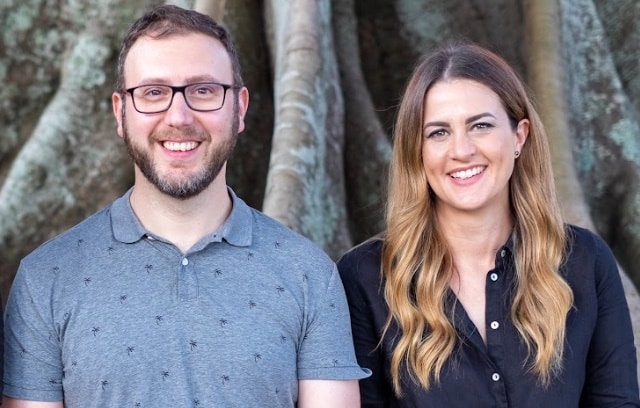Sprint is incredibly excited to announce our recent investment in Music Health’s $1.5M seed round alongside other investors including Giant Leap Fund, Berkeley Skydeck, HappenCo and Universal Music Group.
Music Health is tackling a trillion-dollar global health problem, using proprietary AI technology to deliver music therapy for people living with cognitive decline and dementia. Their technology is drastically improving health outcomes and quality of life for society’s most vulnerable.
Music Health, and their flagship product Vera, tackle the behavioural and psychological symptoms of dementia, using targeted music to stimulate the brain. They use their specialised AI to play personally significant music for an individual. Taking a variety of factors into account, both the fixed (an individual’s cultural, and linguistic background and life experiences) and the fluctuating (including the individual’s personality, mood, time of day and lifestyle), Vera provides tailored music playlists that are developed to positively stimulate the brain. The tech has been shown to significantly increase blood flow in the brain, slow down the effects of brain ageing and dementia, and significantly improve the user’s quality of life through more consistent mood patterns. We are so excited to help fuel Music Health in the next phase of its growth.
Why We Love Music Health
Tackling a uniquely complex and important issue
In the wake of the pandemic, a mass employee exodus has left the aged care sector reeling and growing pockets of Australia’s ageing population uncared for. Two-thirds of current aged care workers are expected to exit the industry within the next three years, with employees citing the high-stress, low-wage environment as the primary catalyst. Efforts to elevate the quality of care received by aged care recipients, including the 2018 Aged Care Royal Commission, have mounted further pressure on workers whose services are now demanded at a higher standard for longer.
The exodus comes as hoards of baby boomers move beyond retirement age and life expectancy continues its steady rise, notably increasing the global prevalence of cognitive deterioration. Currently, over 55 million individuals around the world are living with dementia, with nearly 10 million new cases every year. According to estimates from the United Nations, by 2050, over 20% of the global population will be over the age of 60, resulting in an estimated 2 billion people experiencing brain ageing, with 150 million of them living with dementia. The annual cost of care for individuals with dementia is staggering, with an average cost of $35,550. This means that by 2050, the estimated 150 million individuals with dementia will cost the global economy a staggering $5 trillion.
90% of patients with dementia develop behavioural and psychological symptoms (BPSD) at some point during their journey. These symptoms include delusions, aggression, screaming, depression, anxiety, wandering, and more. Critically, BPSD results in impaired quality of life, increased cost of care, and places a significant burden on caregivers.
With a global healthcare worker shortage, exacerbated by rising demand for their services, we need to explore innovative technological solutions that can reduce the burden on healthcare workers, allowing them to allocate their time more effectively.
This is where Music Health comes in. While there is currently no cure for brain ageing and dementia, there are ways to slow down its effects. One of the most powerful methods is through listening to music which stimulates sensations of nostalgia. Studies have shown that by doing so, we can oxygenate the brain and keep its circuits healthier for longer.
Listening and making sense of what we hear requires the involvement of nearly every region and neural subsystem of the brain. Music activity is one of the most demanding processes for the brain, and just like physical exercise, this “brain workout” can be incredibly beneficial in maintaining brain health.
Music Health is using this science, coupled with its proprietary AI technology, to lessen the growing trillion-dollar strain that the global healthcare system is tackling.
Incredible Founders
Nicc Johnson and Stephen Hunt, represent everything that Sprint stands for: bold, ambitious, and driven by the desire to build a better future. Stephen has been part of multiple music startups, most notably TubeMogul which was acquired by Adobe in 2016 for $540 million. All of the startups Nicc and Stephen have been a part of have been in the music sector showcasing the speciality knowledge held by the founders. They have a unique set of skills & experiences that make them the perfect one-two combo to spearhead Music Health’s mission.
Nicc has over 16 years of experience as a musicologist and DJ at world-renowned clubs, while Stephen was a former MD at Universal Music Group. Together, they have assembled a show-stopping team with the right talent and experience to see Music Health through.
For Stephen, the issue of Alzheimer’s is deeply personal. He was affected by his grandfather’s battle with the disease and sought to provide comfort through the power of music. Specifically, he found solace in playing his grandfather’s beloved instrument, the ukulele, as a means of calming and soothing him during his illness. This experience not only solidified Stephen’s passion for using music as a therapeutic tool but also served as a driving force in his dedication to finding innovative solutions for individuals suffering from Alzheimer’s and other forms of dementia.
Nicc experienced a similar story with his family’s experience with dementia. First his grandmother began progressing through the stages of dementia and now one of his parents has also showcased signs. Nicc sought out a digital music therapy solution for his family and peers however when nothing was available he founded Music Health.
Competitive Edge
Music Health’s competitive advantage is rooted in its advanced licensing and access to music rights. By partnering with industry leaders like Universal Music Group, Music Health is able to secure a diverse range of music licences at a more competitive cost. This enables Music Health to offer a wide variety of music options to its clients, specifically tailored to their individual needs and preferences.
With its vast library of licensed music, Music Health uses its proprietary technology to create custom playlists for patients, and these playlists can be tailored to the patient’s specific medical needs, such as reducing anxiety, promoting relaxation, and even pain management.
We are excited to partner with Music Health!
At Sprint, we invest in Australia’s most exciting start-ups. If you’re an early stage or growth stage founder, Sprint can help you secure investment and support your growth with leading industry advisors. Apply for funding and we’ll sprint with you.




